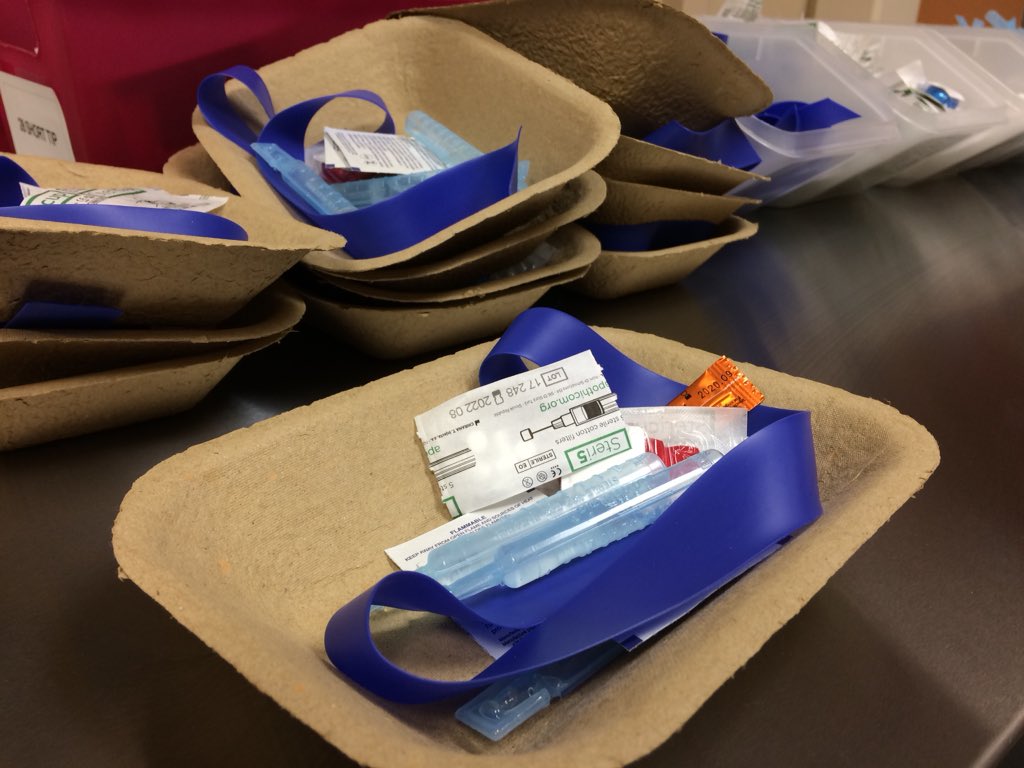With an opioid overdose rate five times the provincial average, health officials in Barrie are still waiting to hear whether or not the application for an overdose prevention site for the city will be approved or denied.

Last month, the Simcoe County Muskoka Opioid Strategy (SMOS) steering committee released a multi-tier, comprehensive strategy to address opioid use, addiction and overdose in the region.
As one part of that strategy, the Gilbert Centre, along with the Simcoe County branch of the Canadian Mental Health Association (CMHA), filed an application with the Ministry of Health and Long-Term Care to appeal for funding for an overdose prevention site.
However, earlier this week, the Ontario Progressive Conservative government announced that three overdose prevention sites scheduled to open in Thunder Bay, St. Catharines and Toronto would be halted, so officials could review if they “have merit.”
It remains unclear at this time what the announcement means for pending applications, like the one submitted for Barrie.
“I haven’t heard anything directly from the province, but I’ve heard through the media that they have put a pause on all sites not currently open to the public,” Matt Turner, harm reduction co-ordinator at the Gilbert Centre said in a phone interview.

Get weekly health news
“My interpretation of it is they are in a pause while they review the evidence before they make any approvals,” he said.
And now, without weekly statistics from the government, Turner says it is unclear just how dire the situation has become.
“Since the province has changed over with a new government, the current government has not provided weekly updates like the previous government was so I don’t know what the current trends, or the current numbers for overdoses. Just from what I am hearing anecdotally, we are seeing the same amount,” he said. “So it still indicates there is a real problem in the community that isn’t being addressed.”
According to data sourced from the Simcoe Muskoka District Health Unit back in July, opioid overdose emergency department visit rates in Simcoe Muskoka have doubled compared to what was observed between 2010 and 2014, and have tripled compared to the rates observed in 2004 to 2008.
Turner says drug users in the area are now afraid.
“For folks that use drugs, there is a potential that the next dose could be the last dose. They don’t know what they are getting into. Talking to some of the people I work with, they’re afraid because they don’t know what is going to happen now,” he said. “A lot of them are really itching for a site to come in so that they can be connected to care, can inject safely and can be able to stay alive.”
According to Turner, as it stands, people in Barrie who choose to use drugs don’t have access to the care they need the most.
“The minister has indicated she wants more addiction treatment, and that will be good for the treatment pillar, and it will hopefully mean more money for RAAM clinics and other treatment sites, so that is a good thing we are addressing it somewhat,” he said. “But the reality is that folks need to make it into treatment. If they’re dead, I can’t help them out.”
If the provincial government decides to stop funding overdose prevention sites altogether, Turner says the next option would be to apply for a permanent supervised consumption site for the city, however, Turner says that process could take up to two years.








Comments